Supreme Court to hear 'wheelchair vs buggy' bus case
- Published
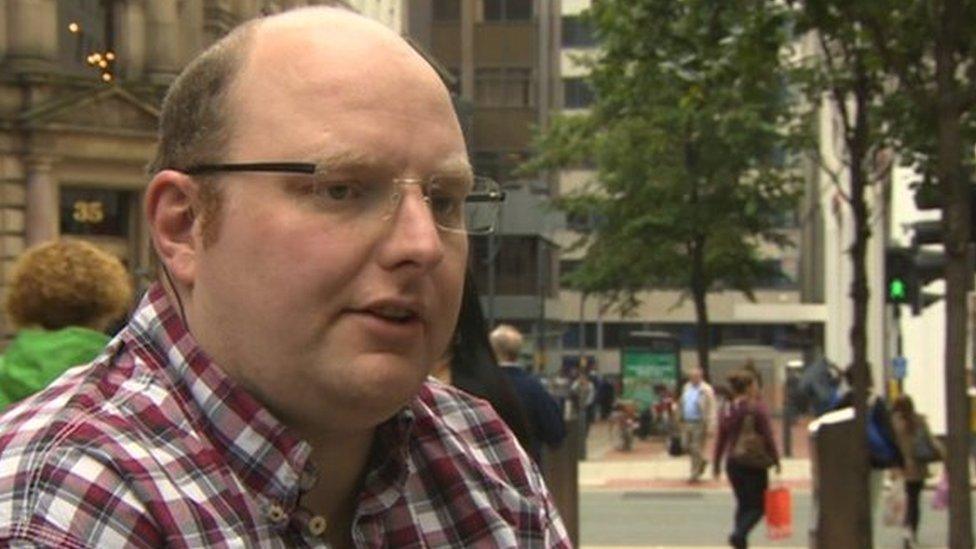
Doug Paulley could not get on a FirstGroup bus after a woman with a pushchair refused to move
A wheelchair user who says bus firms should make able-bodied people move from buses' disabled spaces has taken his case to the Supreme Court.
Doug Paulley was told he could not get on a bus to Leeds in 2012 when a mother with a pushchair refused to move.
He says FirstGroup's "requesting, not requiring" policy is discriminatory, but the bus operator says it is the most feasible that can be employed.
Judgement is likely to be reserved and will be delivered in the coming months.
Mr Paulley won an initial case against the operator FirstGroup Plc, declaring its policy of "requesting, not requiring" able-bodied passengers to move to be unlawful disability discrimination.
FirstGroup appealed successfully to the Court of Appeal in 2014.
'Reasonable adjustments'
This is a case about a man getting on a bus, but it has resulted in a four-year legal battle that has now reached the highest court in the land.
Speaking exclusively to the BBC, Mr Paulley said: "I appreciate it is difficult with kids and luggage and everything else, to fold a pushchair, or to move it, but ultimately unless she did that she is effectively stopping me from being able to use that bus.
"It's about the reasonable adjustments that organisations have to make so that disabled people can have access to the things that other people in society take for granted."
Under the Equality Act 2010, companies providing services must make reasonable adjustments to accommodate the disabled.
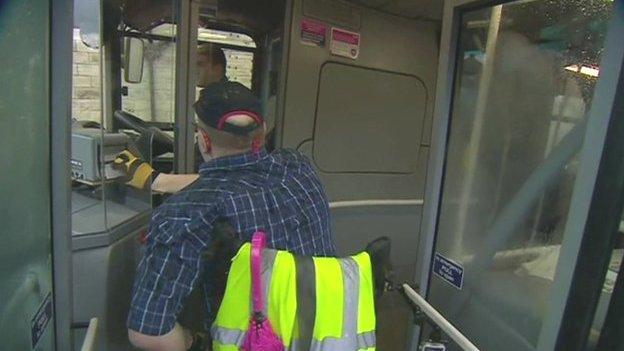
Mr Paulley says FirstGroup's "requesting not requiring" policy is discriminatory
Mr Paulley was awarded £5,500 in compensation and FirstGroup was given six months to change its policy of asking - but not making - able-bodied passengers vacate the wheelchair space.
But the judgement in Mr Paulley's favour was reversed by the Court of Appeal in 2014, which ruled that although wheelchair users have priority to occupy the wheelchair space, there is no legal requirement for bus drivers to move other passengers from it.
Mr Paulley appealed against that ruling and now what has been dubbed the "battle between the wheelchair and the buggy" has reached the highest court in the land.
'Sending a message'
His solicitor Chris Fry, of Unity Law, said: "A panel of seven Supreme Court judges is unusual, and a reflection of the significance of the case."
He said he hoped the court would "finally make the correct legal and moral decision" in support of social inclusion for disabled people.
Mr Paulley's case is being funded by the Equality and Human Rights Commission.
Its chief executive Rebecca Hilsenrath told the BBC: "For us, this case is about sending a message across the country to bus companies to put in place policies, clear guidelines, training for bus drivers so that they are able to manage the situation so that they give priority to those in wheelchairs."
The case is the first disability discrimination case involving service providers to be heard by the Supreme Court.
FirstGroup maintains that its policy of "requesting, not requiring" able-bodied people to move from the wheelchair space is lawful.
Giles Fearnley, managing director of its bus division, said: "It is very rare for a passenger to refuse to move.
"Our drivers will ask a passenger in the strongest, politest way they can to move, and we train them to do so.
"When someone does refuse to move it is extraordinarily unfortunate, but we do believe that the approach we take is the most feasible under the circumstances."
The judgment is expected to have wide-ranging implications for bus, train and other transport companies and service providers.
- Published9 July 2015
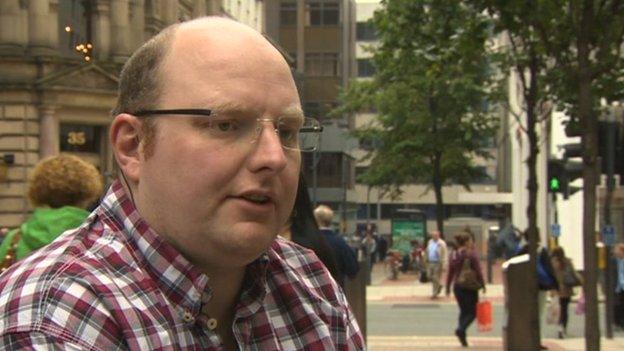
- Published8 December 2014
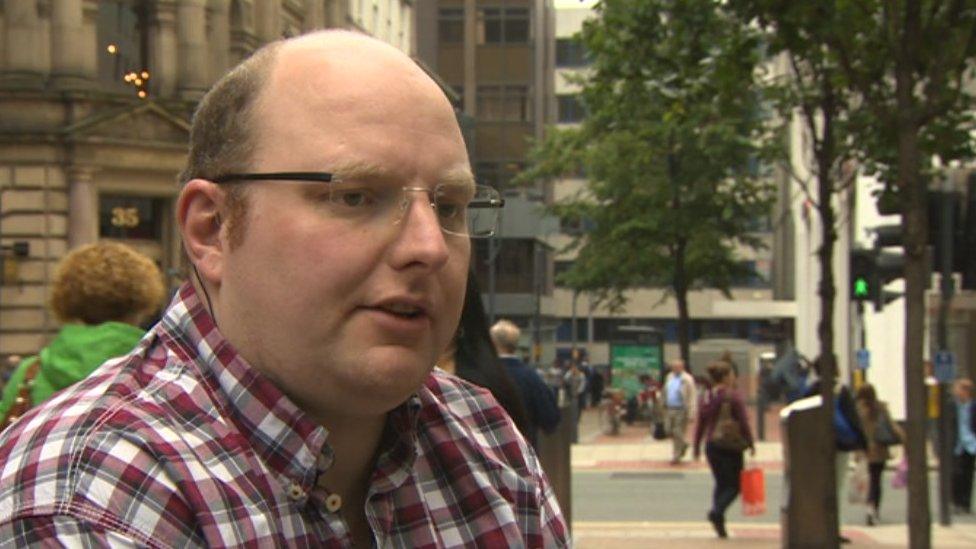
- Published13 November 2014
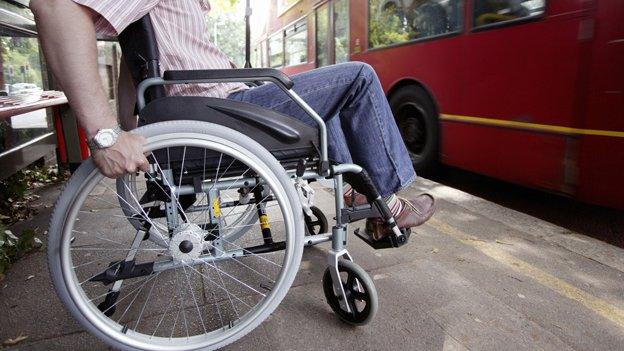
- Published11 November 2014
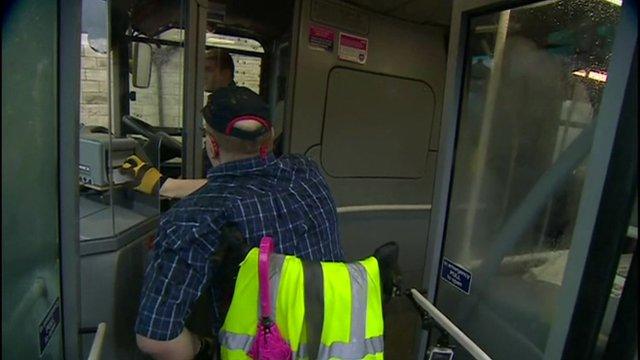
- Published1 November 2013
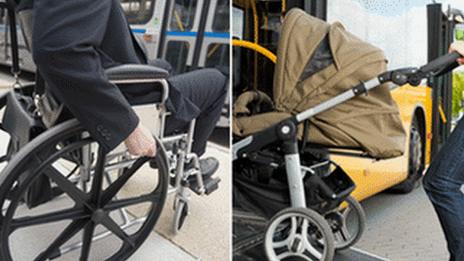
- Published23 September 2013
